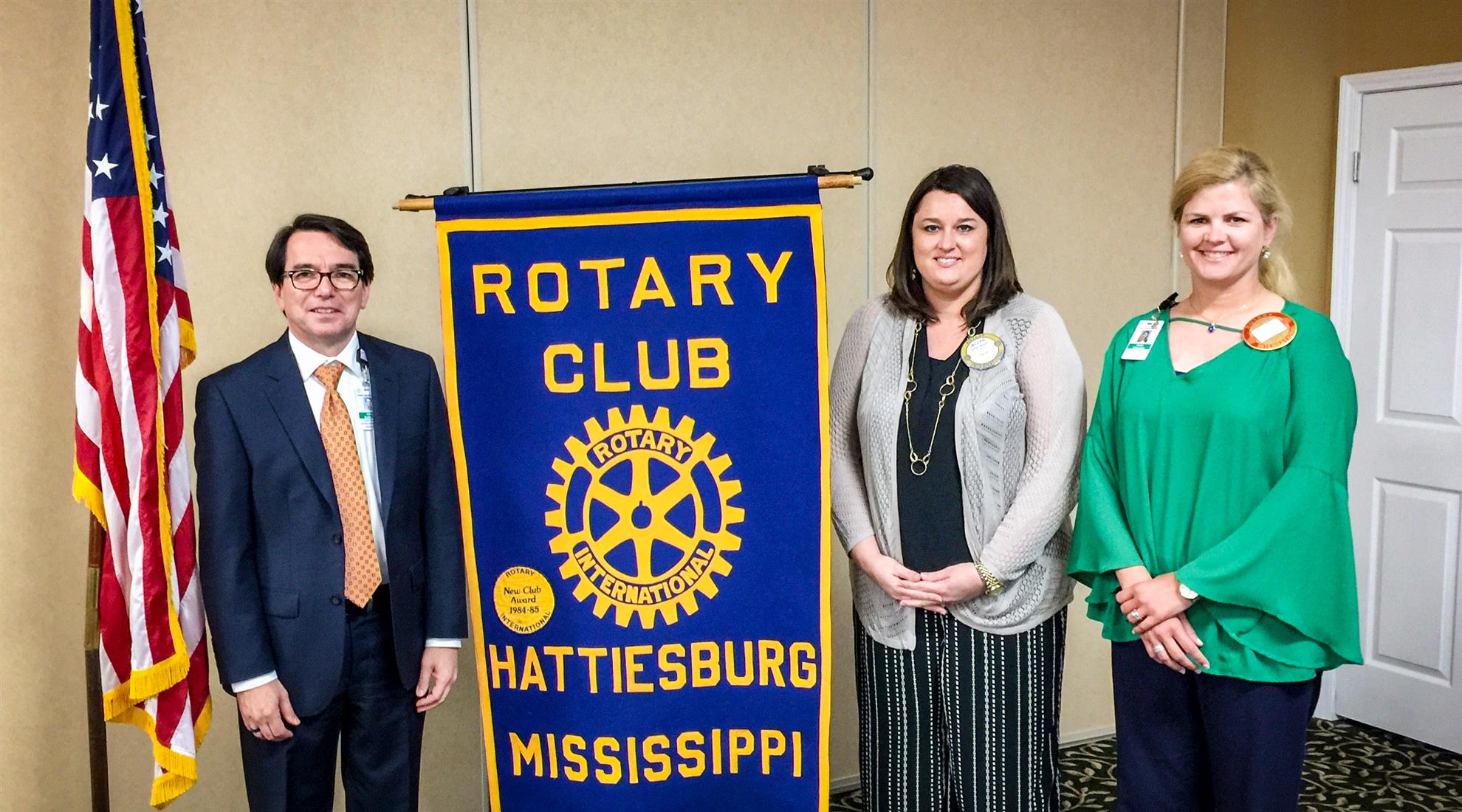MINUTES: May 30, 2017

L-R: Dr. David Boyte, Jaclyn Adams, and Amber Chancelor.
President Jaclyn Adams presided over the meeting. She thanked Sean Priebe for presiding at last week’s meeting in her absence. Thanks to Mike Ratliff who gave the invocation and to Bill McLeod who led us in the Pledge of Allegiance.
Thanks also to Mitchell and Robert Lochhead and who served as our greeters today.
Tracie Fowler welcomed our guests. Don Strange is a guest of James Mitchell. Emily Gruzinskas is Tracie’s guest.
Jaclyn reported that Katie Anthony’s membership application has been...
approved and she will be inducted in the next couple of weeks. She also noted that a group of student members will be arriving by Amtrack on June 9th on their way to the Atlanta Rotary convention. Petal, Sumrall and Hattiesburg Rotarians are asked to be at the train station to welcome them to Hattiesburg. They should be arriving around 9:30 a.m.
Lynn Walton noted the 50/50 raffle prize is now at 5,400. She reminded members that the drawing will be held on Tuesday, June 27th. All tickets should be sold by that date.
Wes Brooks invited all members to visit the club’s Facebook page, like and share the posts increasing awareness of our club’s activities.
Amber Chancellor then introduced today’s guest speaker, Dr. Rick Boyte. He is a member of the Palliative and Supporting Care Team at Forrest General Hospital. The focus of his presentation today will be Talking with children about serious illness and death.
Dr. Boyte had a personal experience with this topic when his mother was diagnosed with lung cancer about 10 years ago. He and his wife had to decide what to tell their children about their grandmother’s illness and her eventual death.
Talking to children about such things is often difficult because we prefer to avoid talking about things that upset us. Parents also have a natural instinct to protect their children from harm and talking about undesired possibilities seems forbidden with children. Often parents have limited support resources during difficult times.
Children, according to Dr. Boyte, typically want to know what is happening. A family illness disrupts routine and can create fear of the unknown. Often if children don’t have the correct information they may opt to construct their own version of what is happening. School age children and teens whose parents are in terminal stages of illness often display significantly higher levels of depression and anxiety.
Infants and young toddlers can be aware of changes in their surroundings or in the people who take care of them. Their eating habits may change, sleeping patterns change and they may become fussier. Preschoolers may have a limited idea of death and may approach it with magical aspects. They may regress when feeling threatened. School-age children can still be very confused but they are beginning to have a deeper understanding of the consequences of serious illness.
...If you are the one who has to communicate bad news, Dr. Boyte suggests that you use simple and clear words. Do not be afraid to put emotions into your words. Be direct and honest and share your own sadness. Make sure you give children permission to grieve and don’t be surprised how each child may express their grief.
Listen and comfort. Tell your child what to expect and give your child a role. Talk about funerals and rituals and help your child remember the person.
However, parents and caregivers are reminded that language and information must be age appropriate for each child. Consider their unique situation, his or her developmental capacity to understand and his or her relationship to the ill or departed individual.
Here are a few resources Dr. Boyte shared: childdevelopmentinfo.com, kidshealth.org, and childlife.org.
Jaclyn thanked our speaker and with no other business to discuss she adjourned the meeting with our motto, “Service Above Self.”